Landscaping in Welling: Transform Your Outdoor Space
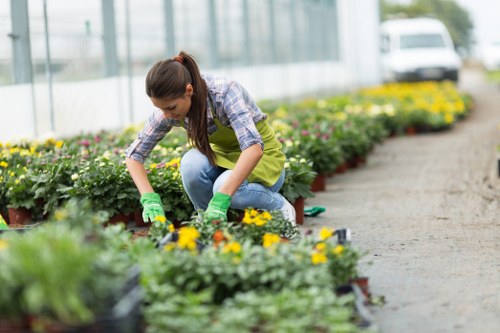
Landscaping in Welling offers residents the opportunity to create beautiful, functional outdoor spaces that enhance the aesthetic appeal and value of their homes. Whether you're looking to design a cozy garden, a spacious patio, or a lush green lawn, professional landscaping services can help bring your vision to life.
Effective landscaping not only improves the visual appeal of your property but also provides practical benefits such as improved drainage, reduced erosion, and increased energy efficiency. By thoughtfully selecting plants and design elements, you can create a sustainable and enjoyable outdoor environment.
In Welling, the diverse climate and soil conditions present unique challenges and opportunities for landscaping. Understanding the local environment is crucial for choosing the right plants and materials that will thrive year-round.
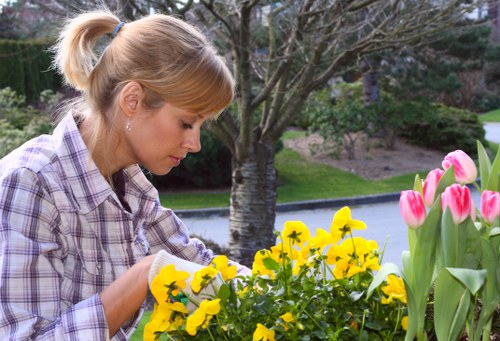
Choosing the Right Plants for Welling's Climate
Selecting plants that are well-suited to Welling's climate is essential for a thriving landscape. Native plants are often the best choice as they are adapted to the local conditions and require less maintenance.
Native Plants: Incorporating native species like lavender, foxgloves, and daisies can create a sustainable garden that supports local wildlife and reduces the need for excessive watering and fertilization.
Seasonal Varieties: To ensure year-round beauty, choose a mix of plants that bloom in different seasons. Spring bulbs, summer perennials, autumn foliage plants, and winter evergreens can provide continuous color and interest.
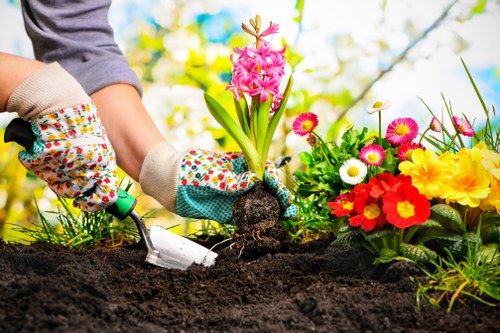
Designing Your Landscape: Key Elements
Hardscaping Features
Hardscaping refers to the non-living elements of your landscape design. These include pathways, patios, walls, and water features that provide structure and functionality to your outdoor space.
Softscaping Features
Softscaping involves the living components of your landscape, such as plants, trees, and flowers. Integrating softscaping with hardscaping creates a balanced and harmonious environment.
- Pathways: Well-designed paths guide visitors through your garden and connect different areas.
- Patios: A comfortable patio area serves as a perfect spot for relaxation and entertaining.
- Water Features: Ponds, fountains, and waterfalls add a soothing element and attract wildlife.
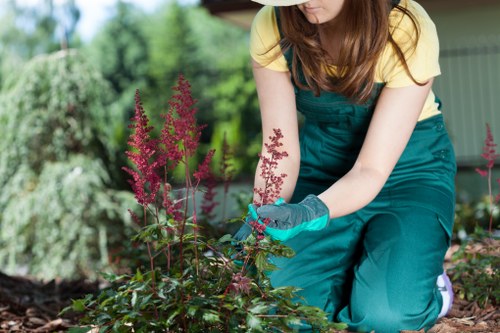
Sustainable Landscaping Practices
Sustainability is a key consideration in modern landscaping. Implementing eco-friendly practices not only benefits the environment but also reduces maintenance costs and enhances the longevity of your landscape.
Water Conservation: Utilizing drought-resistant plants and efficient irrigation systems can significantly reduce water usage.
Composting: Recycling garden waste into compost enriches the soil and promotes healthy plant growth.
- Rainwater Harvesting: Collecting rainwater for irrigation minimizes reliance on municipal water sources.
- Organic Gardening: Avoiding chemical fertilizers and pesticides promotes a healthier ecosystem.
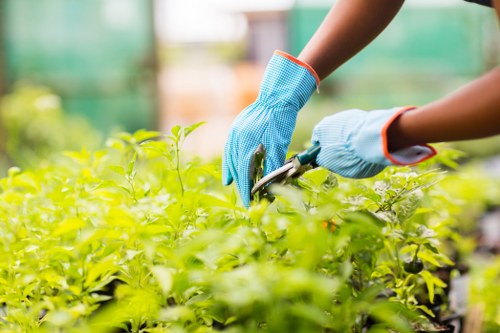
Seasonal Landscaping Tips
Spring
Spring is the perfect time to plant new flowers, clean up garden beds, and prepare your landscape for the growing season. Consider planting bulbs and annuals that will bloom brightly throughout the summer.
Summer
During the summer months, focus on maintaining your garden by watering, weeding, and pruning. Incorporate shade-loving plants and consider installing a water feature to keep the area cool.
Autumn
Autumn is ideal for planting trees and shrubs. Clear away fallen leaves and prepare your garden for the colder months by adding mulch to protect plant roots.
Winter
In winter, focus on garden maintenance by pruning dead branches and protecting sensitive plants from frost. Use evergreen plants to maintain greenery and add visual interest during the colder months.
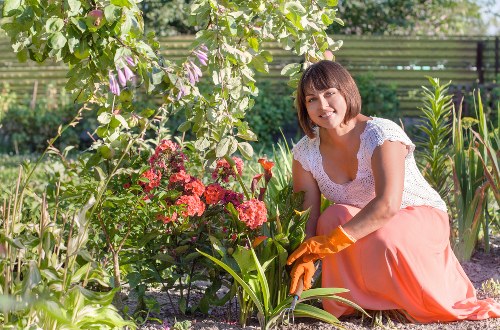
Maintenance Tips for a Lush Landscape
Regular maintenance is essential for keeping your landscape healthy and beautiful. Establishing a maintenance routine helps prevent issues such as plant disease, pest infestations, and overgrowth.
Pruning: Regular pruning encourages healthy growth and removes dead or diseased branches.
Weeding: Keeping your garden free of weeds reduces competition for nutrients and water, allowing your plants to thrive.
- Fertilizing: Provide your plants with the necessary nutrients to promote strong growth and vibrant blooms.
- Lawn Care: Mow, water, and aerate your lawn regularly to maintain a healthy green space.
Hiring Professional Landscaping Services in Welling
Professional landscapers bring expertise and creativity to your landscaping project. They can help you design, install, and maintain your outdoor space, ensuring that it meets your aesthetic and functional needs.
When choosing a landscaping service in Welling, consider their experience, portfolio, and customer reviews. A reputable landscaper will work with you to understand your vision and provide tailored solutions that fit your budget.
Professional services also offer ongoing maintenance packages, ensuring that your landscape remains pristine and well-maintained throughout the year.
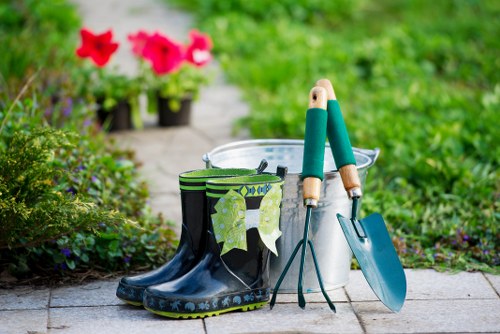
Cost Considerations for Landscaping Projects
Budgeting is a crucial aspect of any landscaping project. Costs can vary widely based on the size of your garden, the complexity of the design, and the materials used.
It's important to set a realistic budget and prioritize the elements that are most important to you. Consider breaking the project into phases to manage costs effectively and allow for adjustments as needed.
- Design Fees: Professional design services may include an initial consultation and detailed plans.
- Material Costs: The price of plants, stones, wood, and other materials can impact your overall budget.
- Labor Expenses: Skilled labor is essential for quality installation and maintenance.
Local Regulations and Permits
Before undertaking major landscaping projects in Welling, it's important to familiarize yourself with local regulations and permit requirements. Certain projects, such as building large structures or altering drainage systems, may require approval from local authorities.
Ensuring compliance with these regulations helps avoid potential fines and ensures that your landscaping project is safe and environmentally friendly.
Consult with your landscaping professional or local planning office to understand the necessary steps before starting your project.
Enhancing Curb Appeal with Landscaping
A well-designed landscape can significantly enhance the curb appeal of your home. Thoughtful landscaping creates a welcoming atmosphere and can make a strong first impression on visitors and potential buyers.
Incorporate a mix of textures, colors, and plant varieties to create visual interest. Use lighting strategically to highlight key features and ensure your garden looks stunning even at night.
- Entryways: Beautify your front door with potted plants, decorative stones, and well-maintained pathways.
- Fencing and Borders: Define your property boundaries with stylish fencing and colorful borders.
- Lighting: Install outdoor lighting to highlight plants, pathways, and architectural features.
Exploring Nearby Areas: Expanding Your Landscaping Horizons
Welling is surrounded by a variety of neighborhoods, each offering unique features that can inspire your landscaping projects. Here are some of the closest areas to Welling and their distinctive landscaping attributes:
- Bexleyheath: Known for its expansive parks and gardens, Bexleyheath offers lush green spaces perfect for family-friendly landscapes.
- Plumstead: Plumstead boasts beautiful waterfront gardens along the River Thames, providing scenic views and serene environments.
- Eltham: Eltham's Royal Eltham Palace grounds inspire regal and structured garden designs with historical elements.
- Sidcup: Sidcup features charming suburban gardens with a mix of modern and traditional landscaping styles.
- Chislehurst: Chislehurst's wooded areas and waterways offer naturalistic landscaping opportunities with a focus on native plants.
- Crayford: Crayford's community gardens and greenbelts encourage sustainable and community-oriented landscaping projects.
- Albany Park: Albany Park is known for its vibrant floral displays and colorful garden arrangements.
- Belvedere: Belvedere's elevated areas provide unique perspectives for landscape design, incorporating elevation and tiered planting.
- Blackfen: Blackfen features well-maintained public gardens and residential landscapes with a focus on ease of maintenance.
- East Wickham: East Wickham's diverse plant selections and garden layouts inspire creative and personalized landscaping ideas.
- North Cray: North Cray offers picturesque riverside landscapes perfect for creating tranquil outdoor retreats.
- Falconwood: Falconwood's mature trees and established gardens provide a foundation for traditional and elegant landscaping.
- Lesnes Heath: Lesnes Heath emphasizes eco-friendly landscaping practices, including rain gardens and green roofs.
- Slade Green: Slade Green combines modern landscaping techniques with classic plant choices for a balanced outdoor space.
- Green Street Green: Green Street Green's community-focused gardens encourage shared green spaces and collaborative landscaping efforts.
Frequently Asked Questions
1. How much does landscaping in Welling typically cost?
The cost of landscaping in Welling varies depending on the size of the project, the materials used, and the complexity of the design. On average, homeowners can expect to spend anywhere from £1,000 to £10,000 or more for comprehensive landscaping services.
2. What are the best plants for a low-maintenance garden in Welling?
For low-maintenance gardens in Welling, consider native plants such as lavender, sedum, hostas, and ornamental grasses. These plants are well-suited to the local climate and require minimal care once established.
3. Do I need a permit for major landscaping changes in Welling?
Yes, certain major landscaping changes, such as building large structures, altering drainage systems, or planting large trees, may require permits from local authorities. It's advisable to consult with your landscaping professional or local planning office before starting such projects.
4. How can I make my landscape more eco-friendly?
To create an eco-friendly landscape, incorporate native plants, use sustainable materials, install efficient irrigation systems, and practice composting and rainwater harvesting. Additionally, minimizing the use of chemical fertilizers and pesticides supports a healthier ecosystem.
5. When is the best time to start a landscaping project in Welling?
The best time to start a landscaping project in Welling is during the spring or early autumn when the weather is mild, and plants have the optimal conditions to establish themselves. Starting during these seasons helps ensure successful growth and reduces stress on plants.




